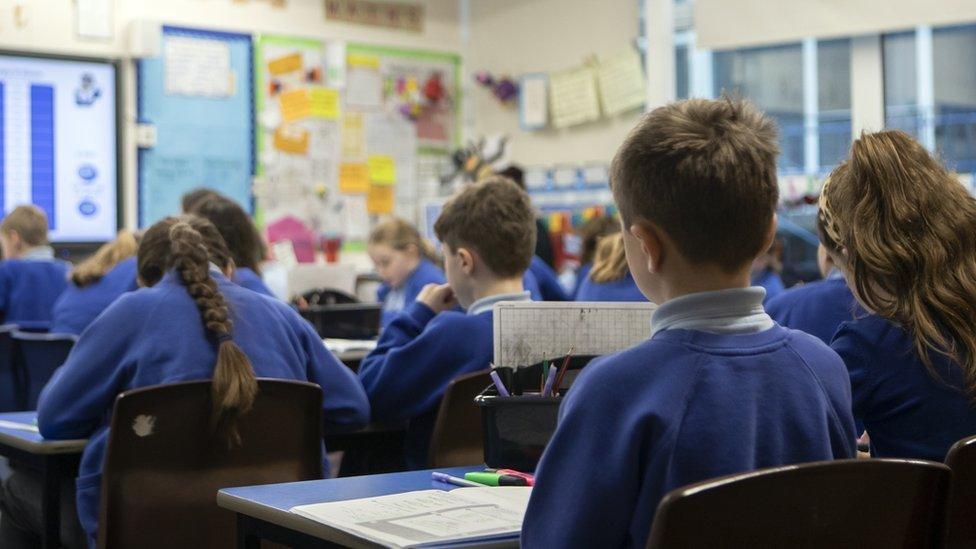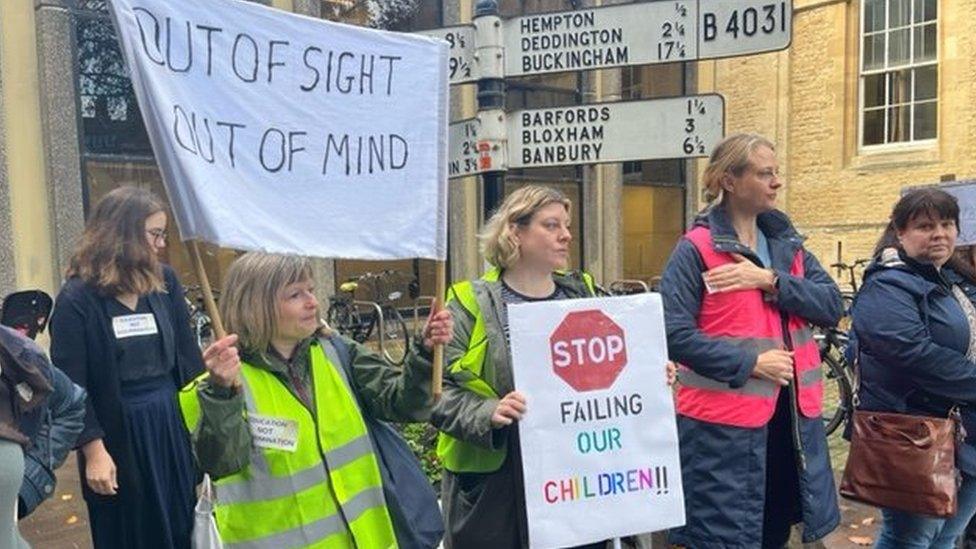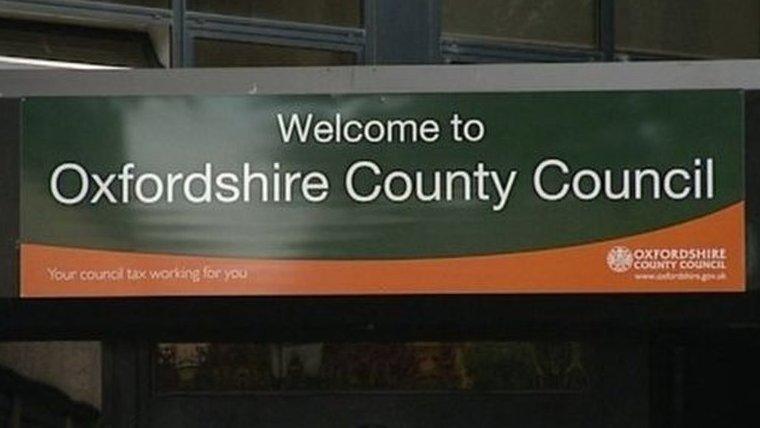Oxfordshire County Council plans to cut pupil funding to plug gap
- Published

The council says it needs to plug a shortfall in its SEND spending
A council plans to cut funding for all school pupils in order to push £2.38m into special educational needs and disabilities (SEND) provision.
Of the schools that responded to Oxfordshire County Council's proposal, 90% have objected.
The council's lead for children, education and young people's services insisted the move was necessary and would save money in the long term.
Liz Brighouse said the money generated would still be "a pittance".
She said the council anticipated a £20m shortfall for SEND in 2023-2024.
A significant portion of the funding councils get for schools comes from the age-weighted pupil unit (AWPU), the basic level of funding for each child.
The change would mean a 0.72% reduction in the AWPU of every pupil in Oxfordshire, which is around £25 per child per year in primary school, £35 for those in years seven to nine, and £40 for those in years 10 and 11.
Councils also have to fund requirements of those with SEND needs, with many overspending to meet legal obligations.
Oxfordshire expects to overspend by £17.5m in the current financial year, with a total deficit of £122m by 2025, according to the Local Democracy Reporting Service (LDRS).

In November, parents of children with SEND needs protested outside the council's headquarters
A recent council report showed it expects to spend £92m on SEND this financial year, £29m of which is expected to go to private providers, some of which are outside Oxfordshire.
In a bid to plug the gap, it will apply to take the maximum it is permitted (0.5%) from its dedicated schools grant for the financial year starting in April 2023, £2.38m of which will be targeted at improving services and increasing the number of places, reducing the need for private providers, LDRS said.
The county requires permission from the secretary of state for education to implement the budget shift.
Ms Brighouse said: "As the number of children with special educational needs goes up, so the deficit goes up.
"There has been a 125% uplift in the number of children we are funding through the high needs block and we have had an uplift in funding of around 49% so it hasn't met the needs - it hasn't nationally and it hasn't here, some local authorities have even bigger problems than we do."

Follow BBC South on Facebook, external, Twitter, external, or Instagram, external. Send your story ideas to south.newsonline@bbc.co.uk.
Related topics
- Published14 December 2022

- Published1 November 2022

- Published19 December 2022
